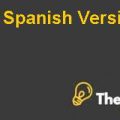Institutional Analysis
Tesco, the largest retailer in the UK opted to exploit opportunities in one of the growing markets in the world, India. However, in order to analyze the success that the company can obtain, it is empirical to identify the major institutional differences between the two countries which will make it easier to assess the potential of success the company has in this new market. However, India is an attractive opportunity due to the market size, butunderstanding the institutional differences is an important facetof the company. First of all, thetwo countries havemajor differencesin the public institutions as in the UK this aspect is highly valued while in India the aspect is least valued. Ethics and corruption in UK are highly monitored and controlledand strong emphasis is given in this area while in India it is a growing concern.
Furthermore, security is a major issue in India and organized crime is exceeding as compared to the UK. On the other hand, the legal framework for foreign investments is not very strong in India as compared to the UK although India is highly dependent on foreign investment. Transparency in the government policy making is not highly efficient in India as compared to the UK while accountability is also a missing phenomenon in Indiaas compared to the UK. Tesco in order to succeed will havetofocus on ethics and corruption, security and the legal framework for foreign investments as these aspects can seriously hinder the growth or success of a foreign investment in the country.
Hofstede’s Values
According to Hofstede’s cultural dimensions, India and UK are quite different in many aspects and the consumer behavior differs a great deal. India has a high score in power distance while UK scores very low which means that orders are directed in India and not every consumer has the right to make their own choices and most of the time the head of the family make the final decisions while purchasing. On the other hand, individualism is a category at which India scores very low while in the UK it is highly accepted. This statement also supports that in India not every consumer has the feasibility or the luxury to make the final choice.
Furthermore, masculinity is another major difference between the two countries as India score high while the UK is a bit less but the score is moderate. On the other hand, the countries scores are almost similar on uncertainty avoidance and long term orientation. These factors explain that the consumer is quite different in India as compared to the UK and Tesco will have to set its target market, the families rather than just focusing on targeting individual customers. This is an important aspect as the decisions are strongly influenced by the families and their heads in India especially in purchasing goods.
Institutional Changes in India
The multi brand retailing is an opportunity in which FDI is allowed by the country about 51% and Tesco has been quick enough to gain the first mover advantage by initialing joint venture with Tata and opening multi-brand retail stores in the country. On the other hand, the IT infrastructure is improving in the country and the company is utilizing this aspect efficiently to maintain the database and enhance the supply chain.
However, the company faces political regulations as the new government is expected to restrict FDI on foreign multi brand retailing. This can create a strong hindrance for the company and may result in failure for which the company should focus on establishing strong base and relationships with the government officials and align them with their future goals with an assurance to create employment opportunities.TESCO PLC Strategy for India Case Solution
On the other hand, the strong reservation of people regarding foreign brands may hurt the company’s ambition for success. Therefore the company must focus on promoting itself as a local firm despite having foreign origin but delivering local taste. However, the company is challenged with regional markets with different taste and needs and catering them is difficult for which the company must decide the target market that are in the range and easy to cater.
Barriers to Entry
Tesco had to face entry barriers in India from the very start as the regulatory environment is quite complex and any foreign company is not allowed to operate as a wholly owned subsidiary in the country. The companies have to use franchising, licensing or joint venture as the source of entering into the market. The company was supposed to invest in the infrastructure building and was supposed to invest at least 50% of the capital in this regard..............
This is just a sample partial case solution. Please place the order on the website to order your own originally done case solution.













